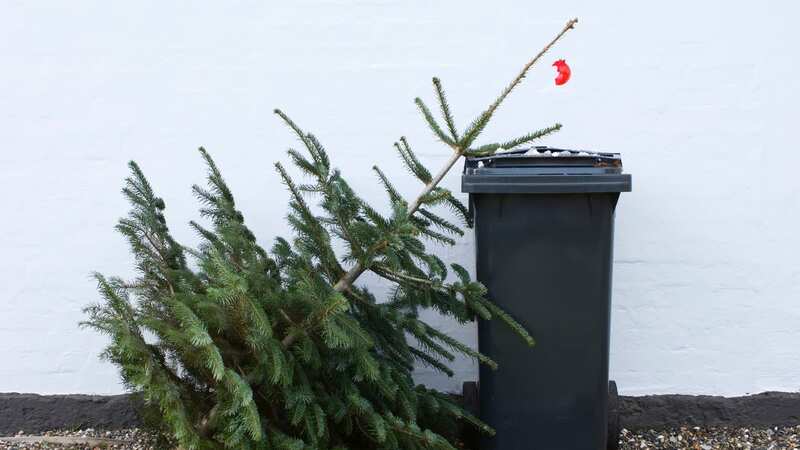Four ways to get rid of your Christmas tree and other festive eco tips

As the echoes of holiday fun slowly fade away and the New Year beckons, the time inevitably comes to bid farewell to the festive centrepiece - the Christmas tree.
While many opt for the plastic variety these days, the classic real tree is still one coveted by many households - despite the pesky pine needles and the problems of disposing of it. Thankfully, the Royal Horticultural Society's chief horticulturist Guy Barter has four top tips of what to do with your festive fir.
Allow it to decompose naturally
Real Christmas trees will naturally decompose given half a chance. Being biodegradable and free from wood preservatives, these soft wood trees can rot away within a year or two if left to the forces of nature. By cutting the Christmas tree into sticks and arranging them neatly in a secluded, shady area of the garden, you create a habitat that supports various insects and wildlife. Additionally, as the tree fragments decompose, they enhance the soil and provide nourishment to nearby plants.
Opt for shredding
 Lindsay Lohan glows in ultra rare public appearance with family at Fashion Week
Lindsay Lohan glows in ultra rare public appearance with family at Fashion Week
Speed up the decomposition process by shredding Christmas trees. Shredded tree pieces make an excellent mulch for shrubs and paths. Some councils and retailers offer shredding services, where the chipped trees are composted in a green waste site. The resulting compost can then be used to enrich farmland, promoting sustainability.
Chop it up and stack it
In the absence of a garden shredder, manually chop the tree into smaller sections using secateurs. Stacking the chopped-up tree in a secluded part of the garden allows it to gradually break down, contributing to the welfare of wildlife as it decomposes.
Build a dead hedge
For those interested in creating a 'dead hedge' – a structure made from packed prunings held together with sturdy posts – Christmas trees are ideal. So why not collaborate with neighbours who may be willing to contribute their spent trees? This is a great wildlife-friendly option that provides a wonderful habitat for various creatures.
Other ways to do your bit for the environment
Revitalising outdoor decor: Instead of disposing of outdoor plants used in decorations, such as pernettyas, skimmia, and hollies, consider potting them and seamlessly incorporating them into your garden.
Choosing hardy festive plants: Opt for enduring Yuletide plants such as Christmas cacti that can thrive in your home for years on end.
Nurturing natural ornaments: Dried flowers and gourds can make wonderful, natural baubles - so why not have a go at growing your own ready for 2024? These can then be composted after use.
Composting short-lived Yutletide plants: Responsibly dispose of short-lived Christmas plants such as poinsettias and orchids by composting them. Additionally, break down and compost cut flowers, ivy, and other evergreens from wreaths and garlands. Make sure you keep artificial elements such as ribbons and frames for reuse in future Christmases.
Sowing the seeds: Use the Christmas break to sow grape seeds, avocado stones, and other leftover fruity pips. This not only yields captivating houseplants but also serves as an educational and enjoyable activity, particularly for children. Transforming citrus fruits into sweet treats adds a delightful touch.
 Mark Wright shares clips of his post-Christmas skiing trip in the French Alps
Mark Wright shares clips of his post-Christmas skiing trip in the French Alps
Composting or repurposing paper and cardboard: Consider composting paper and cardboard or opt for recycling, reducing the necessity to cut down trees for wood pulp, the raw material for such products.
Read more similar news:
Comments:
comments powered by Disqus

































